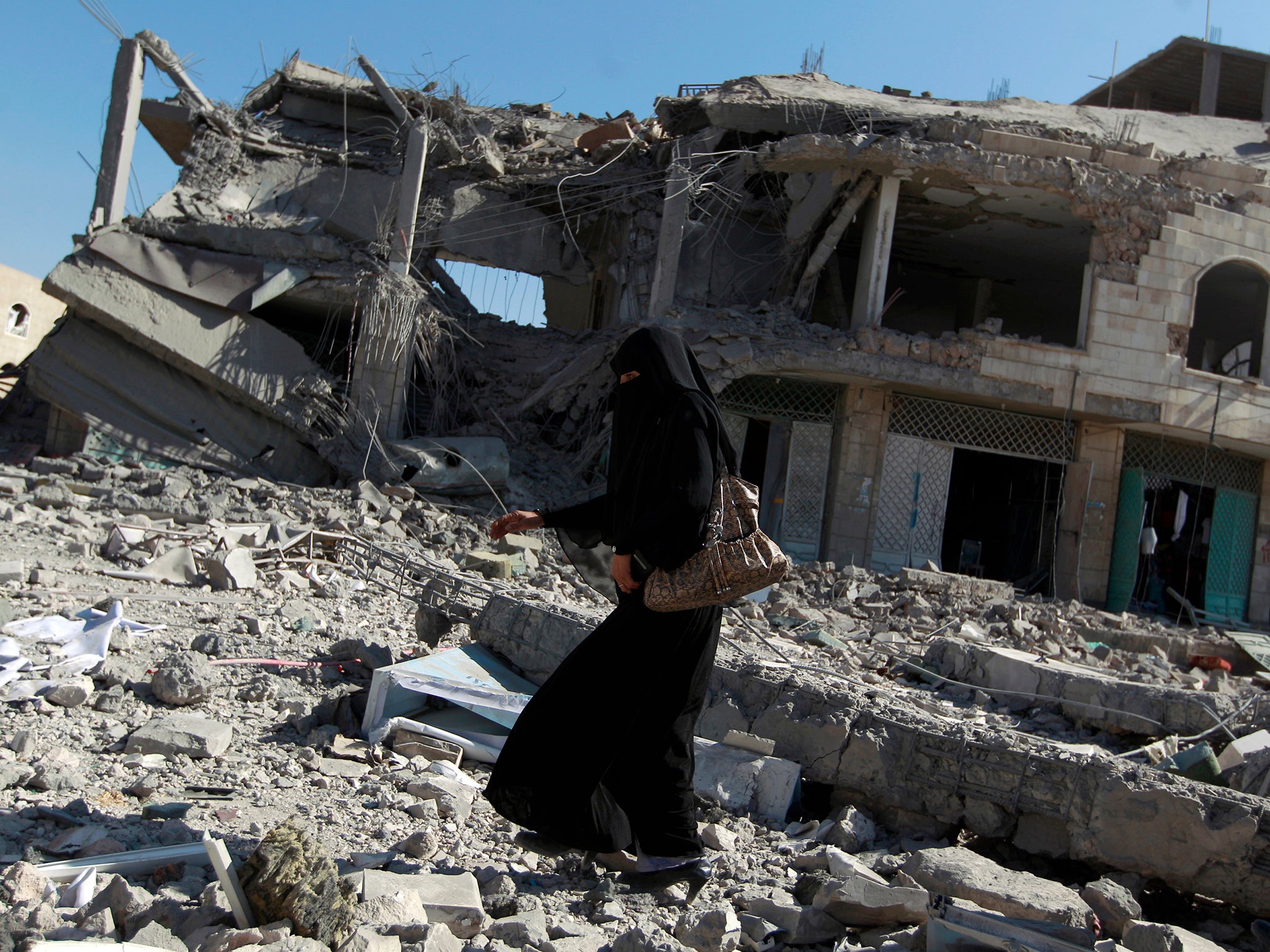The Independent's journalism is supported by our readers. When you purchase through links on our site, we may earn commission.
Despite UK enthusiasm for arms sales to Saudi Arabia, arms export law is very clear - we're in the wrong
The UN and the European Parliament have called out Saudi Arabian attacks on Yemeni civilians - so why is the UK still selling arms to the country?


Your support helps us to tell the story
From reproductive rights to climate change to Big Tech, The Independent is on the ground when the story is developing. Whether it's investigating the financials of Elon Musk's pro-Trump PAC or producing our latest documentary, 'The A Word', which shines a light on the American women fighting for reproductive rights, we know how important it is to parse out the facts from the messaging.
At such a critical moment in US history, we need reporters on the ground. Your donation allows us to keep sending journalists to speak to both sides of the story.
The Independent is trusted by Americans across the entire political spectrum. And unlike many other quality news outlets, we choose not to lock Americans out of our reporting and analysis with paywalls. We believe quality journalism should be available to everyone, paid for by those who can afford it.
Your support makes all the difference.The Saudi led bombardment of Yemen has been going on for almost a year. The humanitarian situation is dire, and it is civilians that are paying the price. Thousands have been killed, with bombs hitting refugee camps, schools, hospitals and aid facilities.
The scale of the destruction was made clear when Médecins Sans Frontières announced that one of its hospitals in the country was to close as a result of air strikes in the area surrounding it. This followed four air strikes on MSF facilities in three months.
In January, a UN Panel report accused Saudi forces of “widespread and systematic” attacks on civilian targets, suggesting the strikes could be in violation of international humanitarian law. This followed similar concerns from a number of human rights organisations, including Amnesty International, Human Rights Watch and Oxfam.
Last month the European Parliament took the unprecedented step of calling for an arms embargo against Saudi Arabia in response to the humanitarian crisis in Yemen. The vote was non-binding, but it sent an important message to arms dealing nations.
However, it comes to Saudi Arabia and its international allies, the reports and the European vote have been ignored by the UK.
Foreign Secretary, Philip Hammond pledged to "support the Saudis in every practical way short of engaging in combat." The UK government has provided almost uncritical political support, while licensing almost £3 billion worth of arms. Last year, Defense News reported that UK bombs earmarked for the RAF had been transferred to Saudi Arabia to aid the bombing.
For decades now, huge amounts of time and political capital have been spent on pushing weapons. The UK hosts major arms fairs and sends government ministers to lobby for arms sales abroad. There is even a 130 strong civil service body, UKTI DSO, that exists for the sole purpose of promoting arms exports.
Despite this enthusiasm for arms sales, UK arms export law is very clear. It says that licences for military equipment should not be granted if there is a “clear risk” that it “might” be used in violation of international humanitarian law. By any reasonable interpretation these criteria should surely prohibit all arms sales to Saudi Arabia that could be used in Yemen.
Last week Campaign Against Arms Trade and our lawyers at Leigh Day submitted a claim for a Judicial Review into the arms sales. We are calling on the Department of Business, Innovation & Skills to suspend all extant licences and stop issuing further licences for arms exports to Saudi while it holds a full review into whether the exports are compatible with UK and EU legislation.
An end to the arms sales would mean that UK arms companies are no longer profiting from the misery being inflicted on Yemen. Just as importantly, it would set a crucial and important precedent. It would finally break the UK’s uncritical support the Saudi regime and put a stop to its complicit role in the collective punishment of Yemen.
Andrew Smith is a spokesperson for Campaign Against Arms Trade (CAAT). You can follow CAAT on Twitter at @CAATuk
Join our commenting forum
Join thought-provoking conversations, follow other Independent readers and see their replies
Comments